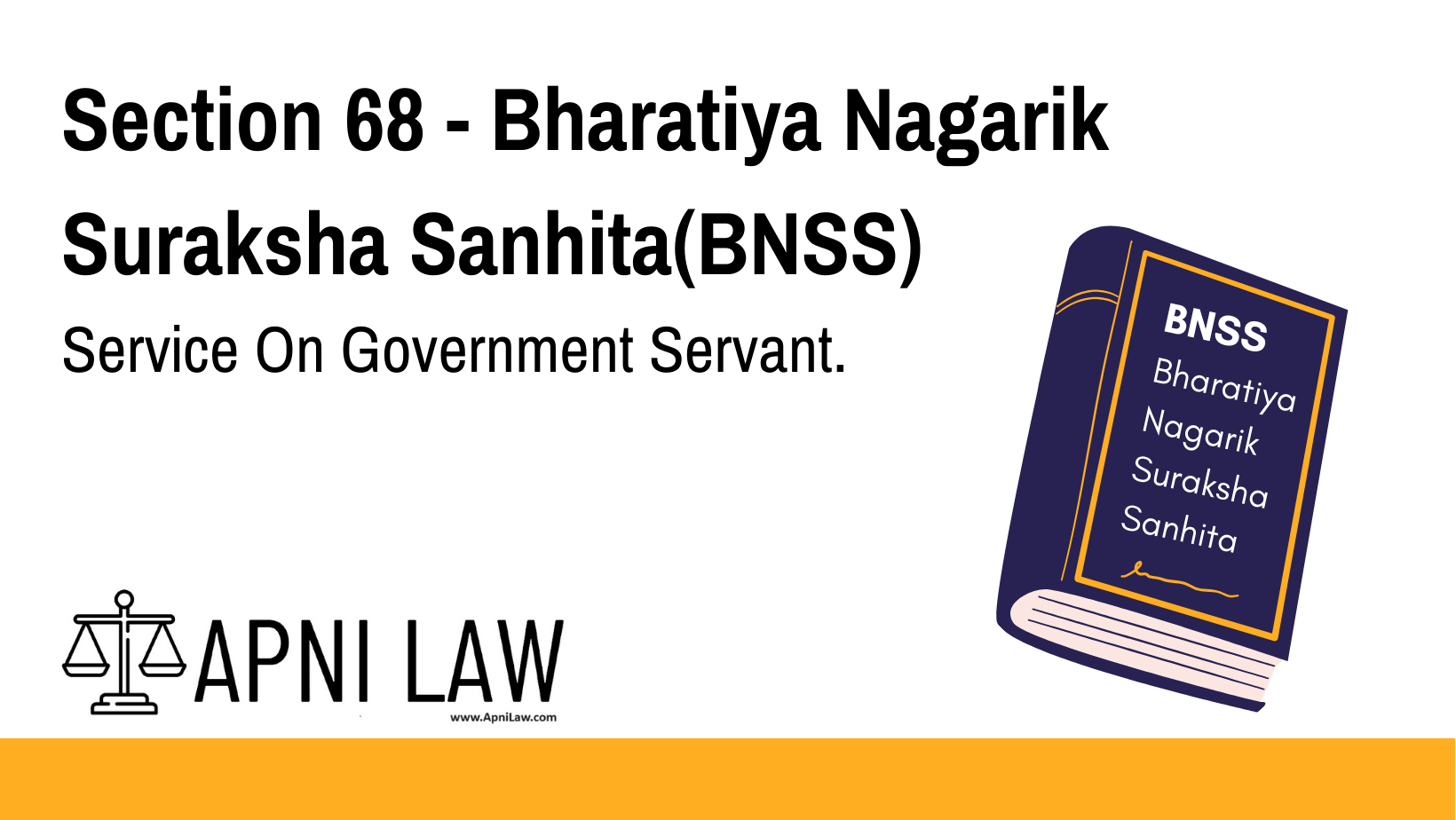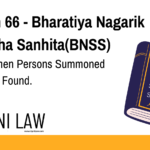Section 68: Service On Government Servant
This section deals with the service of summons on individuals serving in the active service of the Government.
Code:
(1) Where the person summoned is in the active service of the Government, the Court issuing the summons shall ordinarily send it in duplicate to the head of the office in which such person is employed; and such head shall thereupon cause the summons to be served in the manner provided by section 64, and shall return it to the Court under his signature with the endorsement required by that section.
(2) Such signature shall be evidence of due service.
Explanation:
Section 68 of the BNSS mandates a specific procedure for serving summons on government employees. It outlines the following steps:
- The Court issuing the summons sends two copies of the summons to the head of the government office where the employee is employed.
- The head of the office is responsible for serving the summons on the employee, adhering to the method prescribed in Section 64 of the BNSS.
- The head of the office returns one copy of the summons to the Court, signing it and making the necessary endorsements as required by Section 64.
- This signature acts as proof that the summons was served properly.
Illustration:
Imagine a case where a government employee, Mr. Sharma, working as a clerk in the Ministry of Finance, is summoned by the Court. The Court will send two copies of the summons to the Finance Secretary, who is the head of the Ministry. The Finance Secretary will then arrange for the summons to be served on Mr. Sharma, following the procedures outlined in Section 64. Finally, the Finance Secretary will return one copy of the summons to the Court with his signature and the necessary endorsements, confirming that Mr. Sharma has been served the summons.
Common Questions and Answers: on Service On Government Servant
Q: What is the rationale behind this specific procedure for serving summons on government employees?
A: This procedure aims to ensure the efficient and timely service of summons on government employees, who may be difficult to locate due to their official duties. It also ensures the integrity of the service process by having the head of the office responsible for its execution.
Q: What if the head of the office refuses to serve the summons?
A: If the head of the office refuses to serve the summons, the Court can direct them to do so or explore other methods of service, such as serving the summons on the employee directly at their residence.
Q: What happens if the employee is not found at the office or residence?
A: The Court may explore alternative methods of service, such as serving the summons through a registered post, affixing it to the employee’s residence, or resorting to other means deemed appropriate by the Court.







